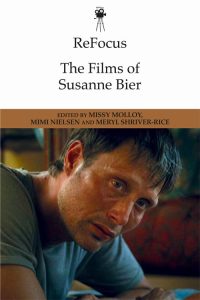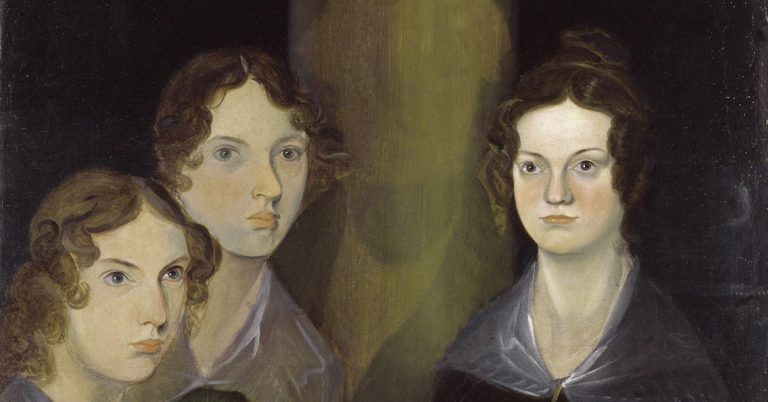
Missy Molloy, Mimi Nielsen and Meryl Shriver-Rice caught-up with Academy Award®, Golden Globe Award and Emmy Award winning writer and director Susanne Bier, as research for their recently published book ReFocus: The Films of Susanne Bier. The full interview is available to read in the book, with selected extracts below:

Molloy: We’re going to ask questions having to do with points that are coming up in different chapters, which begin to create some sort of picture, “Susanne Bier is a filmmaker who. . .” Do you have an idea of what your logline would be for a book on your work?
Bier: I have an idea about what my very specific area of expertise is, what it is that I’m doing particularly well. I think I can create moments of extreme presence, of extreme intimacy; not just in intimate scenes, but also in bigger scenes, there are moments of extreme, intimate presence. Often when scenes don’t necessarily lend themselves to it, I still create that . . . Even in the works that are not entirely successful, there are still moments of that very strong presence. And then in the works that are less successful, there are less of those moments. [Bier laughs]
Shriver-Rice: Do you feel a responsibility as a successful filmmaker to represent characters and situations that are different from what people tend to see in mainstream media?
Bier: I don’t think moviemaking is about education. I don’t think moviemaking or television is about teaching people things that they don’t necessarily want to learn. But I do think it’s about seduction, and I do think seduction will then allow me to emphasize things that I personally think are important. I’m probably more driven by a sense of ethics, a sense of morality, than politics. I am interested in politics, but I find it less translatable into cinema or television than more core questions. I do think at times political cinema tends to be, there is a certain danger of it being predictable that I don’t particularly like, or that I’m not particularly attracted to. I just think that movies and television are not necessarily the best media for abstract ideas . . . My main thing is that I’m always driven to story. I’m always driven to surprising, interesting characters.
Molloy: Have you had moments where you felt surprised by the way the public was receiving the film, or you thought that they were picking up on something you hadn’t intended?
Bier: There have been a number of years that—all my movies have been huge in Denmark. Huge. For example, In a Better World, which went on to win a Golden Globe and an Oscar, but didn’t win the Danish film award and wasn’t even nominated for it. I can’t remember whether the movie was nominated or I was nominated; I can’t remember anymore. There has always been a sense of arrogance on behalf of the reviewers, as if you can’t be sophisticated, or it can’t be innovative, if it hits such a big audience. I have to say, I find it more funny than anything else. It doesn’t bother me, I just register it, and I do find it quite funny. It shows a tendency [that is] incredibly anachronistic, which I also find at the European film festivals, which is like, “Hey, wake up. Realize that you are actually addressing an audience.” There’s nothing particularly attractive in making a movie so complicated and so sophisticated that you get an audience of ten in a select cinema. I’m not talking about everything being a major, huge studio thing, I’m just saying, recognize that part of what you’re doing as a director is actually communicating. And if you have important stories to tell, if you have an important point of view, doing it in a way where you actually address it to an audience is way more important than—and I always feel, “come on, festivals, don’t have 80% of the selections for the competition be completely uninteresting to an audience.” It just doesn’t work. I also think it just completely defies the purpose. I think it’s so wrong.
Molloy: You’ve recently moved into television, and also into the action genre, so now that you’re looking at new scripts, what are you looking for in your next project? What’s a genre that you haven’t worked in that you would love to experiment with?
Bier: At the moment I’m quite tempted to do more action, actually. Just because I found that balance between creating those moments of something profound within something which is way more fluid, I just found it interesting and intriguing and stimulating. I can’t say, “this is the genre I’d like to do.” I can say that, even working in different genres, it’s not the genre itself which is attracting me, it’s the story. I do want to do more spy stuff. I think it’s really fun and surprisingly meaningful. I quite like the fact that you can actually tell something meaningful, but it’s not labelled as being important; it’s labelled as being entertaining, and then it has an undercover.
Molloy: Have you had difficulties in any particular production context, and is there is a certain kind of story or character that you’ve had trouble getting close to representing with the warmth you’re talking about?
Bier: My most troubled production has probably been Serena. It might possibly be that a character who does such horrific things and is played by someone as lovable as Jennifer Lawrence . . . it was difficult making that whole story work. And the same thing with Bradley Cooper. Because I do tend to want to work with actors that I kind of fall in love with, and I think having them be characters who are doing such unforgivable things is just a tricky cocktail . . . Part of what I’ve got is a compass [for what] is right or wrong, and with an audience, I can tell if the beats are working or not. And that sort of intuitive, sharp sense of “Is this working?” goes away. After edit number eight I was completely numb. And I think [the film] was edited for like two years. [laughs]
Molloy: So what production context, material conditions . . . what works best for you?
Bier: Everything quickly. I am like that, I can’t do it; I get bored so quickly. I also can’t stay at a party long. I might have fun for two hours and then I have to go. My daughter told me that in the entire world, she doesn’t know anyone as impatient as me. [laughter]
Molloy: We’re interested in your background in that you’ve said before that you don’t have the traditional biography of a lot of film directors. In your biography on Wikipedia, it says, “and then suddenly [Bier] goes to the Danish Film School.” Where did that come from? You were doing architecture, doing religion, moving around, then you were in the Danish Film School.
Bier: That’s more or less how it was. [laughs] I did architecture, I did become interested in set design, and then I realized, trying to design stuff, I became more interested in, “I wonder who those characters are?”—the characters moving around within the things I was supposed to design. It was gradual, but it was over quite a short time. But I want to say that if you look at religion, and if you then look at architecture, then filmmaking is not necessarily . . . You know, you can make a triangle, and it makes sense. I just don’t come out of a family where anybody was a filmmaker, or an actor, or anything like that.
Molloy: Which film are you most proud of? What can you watch again and again?
Bier: I don’t ever watch my films again. I don’t watch them after . . .
Nielsen: Why? Are you critical of them?
Shriver-Rice: That’s fairly common, actually, for people to not watch them.
Bier: Because after the mix, you can’t really do anything more. And it’s so frustrating. Because I sit there and watch and go “Shit! We should have taken four frames out here.” It doesn’t stop for me, and I can’t do it. It just becomes really painful for me. Even at premieres, I can’t . . . I sneak out the back.
Molloy: Since you say that you work best in short time intervals and at a fast speed, then you must be willing to risk that something doesn’t work.
Bier: Well, experience does help, and I want to say that I’ve always had quite strong script instincts, and I made a decision that I will be quite true to them. Because I do think that I by now have a sense of what it takes for a script to be successful . . . Instinct as to when the story actually works, and when a story does deliver what it sets out to. And possibly that’s where I’m most conventional artistically because I do feel that for living images, the story has to have a certain natural [quality]; everything that doesn’t have it, for me doesn’t really work.
Shriver-Rice: You’ve received a lot of praise for your ability to direct actors. Do you approach directing actors in Hollywood productions differently to Danish productions?
Bier: No. I don’t.
Molloy: Is there any story you’ve told that you feel most personally identified with?
Bier: It’s very hard to say because it changes a bit. I come back quite frequently to After the Wedding when I think about things I’d like to do more of. I don’t think it’s necessarily my favorite film because I don’t think I have one. It was really successful, but I don’t feel that I’m quite finished with it. I’d like to do something more in that vein.
Molloy: The movement into longer-form narrative in television, how has that changed your process, maybe by offering new opportunities in pacing . . . ?
Bier: It’s so interesting, so much fun. It’s like getting a whole new set of tools. It’s amazing. You actually get that through film and reading a novel, you get into the characters, and it feels very short—like making a feature film, it also feels kind of exciting, it just feels very short suddenly. Two hours, it’s almost over. And I almost feel when I’m watching it, I don’t want to watch a feature film; I want to watch something where I know there are many, many episodes.
Susanne Bier’s next project is The Undoing, an HBO mini-series starring Nicole Kidman (with Big Little Lies creator, David E. Kelley, as writer and executive producer). Bier will direct all six episodes of the series, which is based on the book You Should Have Known by Jean Hanff Korelit.
ReFocus: The Films of Susanne Bier is available in hardback now, and releasing in paperback November 2019.






